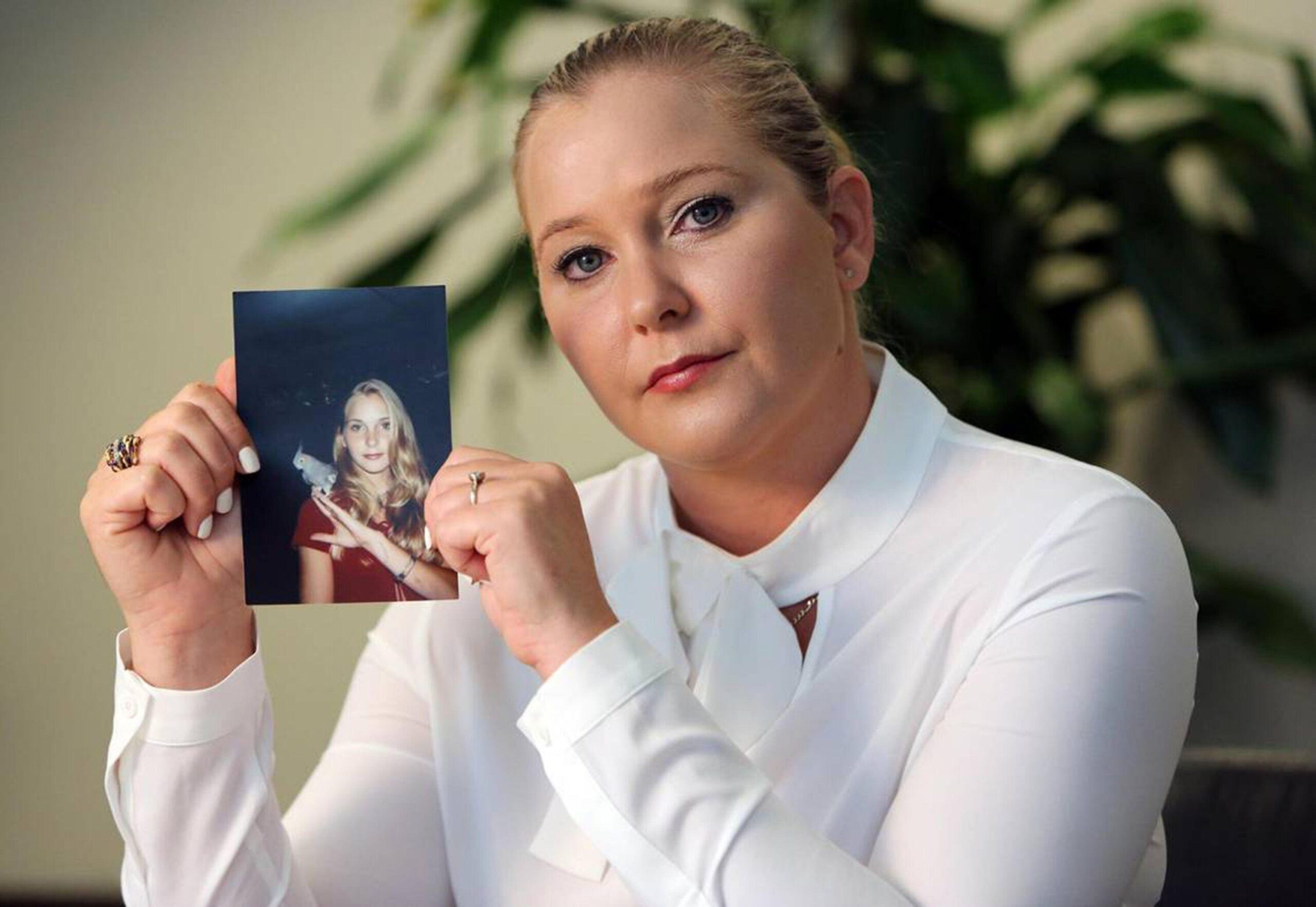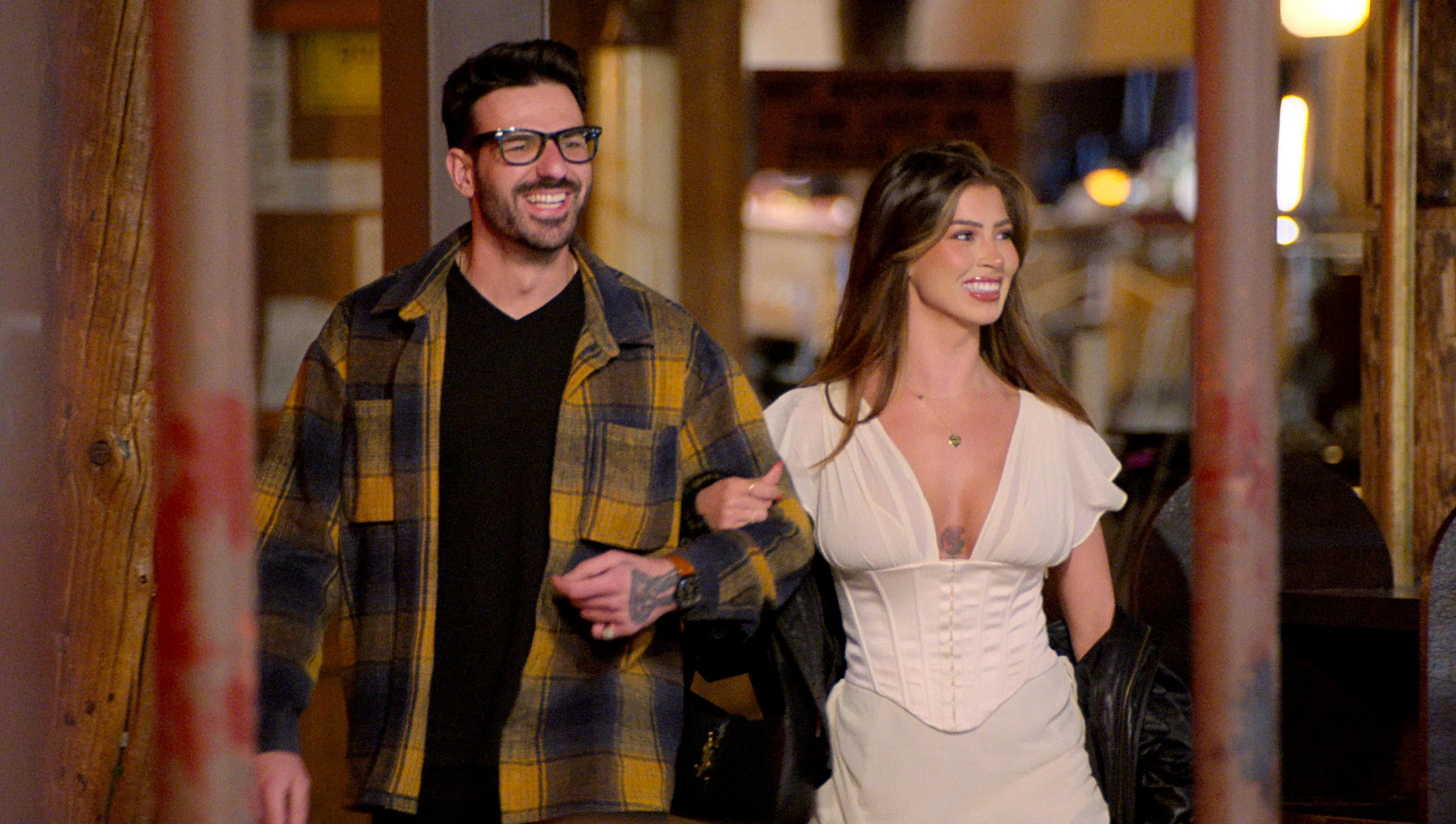Copyright newstatesman

What does it take to get justice as a victim of sexual abuse? That is the question at the heart of Nobody’s Girl, the posthumous memoir by Virginia Roberts Giuffre, a woman known across the world for having been trafficked by the paedophile financier Jeffrey Epstein. Ordinarily, I would be using the word survivor rather than victim. That is how Giuffre wanted us to see her: in the introduction she calls herself “a warrior with a story to tell”, and her book is subtitled A Memoir of Surviving Abuse and Fighting for Justice. But Giuffre did not survive. In April 2025, after the manuscript for her memoir had been finalised, she took her own life. She was 41, and had by this point been fighting for justice in one way or another for close to two decades. But let’s start with the basics. Virginia Giuffre (then Roberts) was raped and trafficked by Epstein and his procurer-girlfriend Ghislaine Maxwell from the age of 16. She was recruited by Maxwell while working for $9 an hour as a spa assistant at Mar-a-Lago, the luxury Florida resort owned by Donald Trump, where Giuffre’s father also worked at the time. Giuffre had a dream of training as a professional massage therapist; Maxwell told her Epstein could make that dream come true. Giuffre spent the next two years as Epstein’s sex slave, travelling the US and then the world with him as he played out his most sadistic fantasies on her, forced her to recruit other young girls for him and pimped her out to his circle of rich and influential associates. Among them, she alleges, was Prince Andrew, who paid her a settlement reportedly in the multi-millions in February 2022, while continuing to deny any recollection of meeting her. There’s a question Giuffre knows sceptical readers will be asking at this point: “How can you complain about being abused… when you could so easily have stayed away?” The first section of Nobody’s Girl seeks to provide an answer. By the time she first encounters Maxwell and Epstein, Giuffre has suffered the kind of trauma that makes her a perfect target. She reveals that she has already been raped repeatedly: from the age of seven by her father, whose years of molestation she recounts in harrowing detail (he denies all allegations); by a family friend with whom she was “traded”; by boys at school; by a random stranger who threatened to kill her; and by a paedophile pimp who picked her up from the side of the road and kept her captive for six months. The result is a broken, desperate teenager who has been taught that all the world will ever want from her is her body and who craves security and validation, however sordid the source. This is a teenager whose damage manifests in ways that are entirely understandable – reckless casual sex, attempts to numb the pain with drugs and alcohol, rebellions against authority figures – yet would also undermine her credibility were she ever to seek help. She is a bad girl, a difficult girl, a girl who keeps getting into trouble – possibly even a prostitute. Who cares about a girl like that? This matters, because Nobody’s Girl is not just a memoir – it’s a template for how difficult it is for victims who have been abused once to escape the cycle. “Young girls (and boys, too) don’t end up being sexually trafficked in a vacuum,” Giuffre writes. “Serial sexual abuse doesn’t happen to them – to us – out of the blue.” In the words of Giuffre’s cowriter, the investigative journalist Amy Wallace, Giuffre’s story is “a predator’s playbook”, a guide for how abusers can exploit such vulnerabilities to get away with it. Entitlement oozes from the pages of this book. Primarily, it radiates from Epstein, whose depravity appears to have no limits. Any girl who has had her period, however young, is fair game. Photos of their naked bodies adorn his house, which his endless parade of friends – both those who partake in his sadistic activities and those who do not – ask no questions about. He leaves copies of books on BDSM out for reporters to see, flaunting his proclivities in the certainty no one will challenge him. At one point, he and Maxwell try to persuade Giuffre to serve as their surrogate. To them, she is nothing but a body to be used – for sex or for childbearing. And how else to describe Maxwell, a character almost more villainous than Epstein, motivated by the lavish lifestyle the financier’s wealth offers to lure young girls into a nightmare, if not as entitled? How to describe Prince Andrew, who in Giuffre’s account assumes that she is there for his pleasure and seems to have “believed having sex with me was his birthright”? How to describe all the other men – some top academics, some leading politicians, some billionaires – who are given Giuffre as though she were a toy, rather than a person? How to describe the rest of Epstein’s circle, the friends who flock to his parties and enjoy his hospitality, who never stop to wonder why a man in his fifties is always surrounded by scantily clad teenagers? There is a photo of Giuffre from May 2001 in the book, at the 31st birthday party of the supermodel Naomi Campbell. The adults, including Campbell and Epstein in the centre of the photo, are dressed in swanky evening clothes; in the foreground, startlingly out of place, stands a waif in a pink tank top who looks like she should be on her way to school. Nobody at that party seems to have asked why Giuffre was there. Epstein was confident he was operating in a world where consequences happened to other people. And for many, many years, he was right. Here’s a date that has nothing to do with Giuffre: 14 March 2005, two and a half years after Giuffre escaped Epstein and Maxwell at age 19 by disappearing in Thailand. That’s the date on which a concerned woman first contacted the Palm Beach Police Department to report that her 14-year-old stepdaughter had been paid to have sex with a wealthy older man, and thus alerting law enforcement to Jeffrey Epstein. For over a year investigators worked on the case: surveying Epstein’s bright pink Florida mansion, noting the stream of young girls coming “to work”, tracking down more than 30 of them. One might think 30 young trafficking victims, many of them underage, would be enough to bring anyone down. But the case went nowhere. Victims who had worked painstakingly with the police were not even informed that their testimonies had been dismissed in a botched attempt at a plea deal in 2006 until after the fact. The second attempt to bring Epstein down involved the FBI, but in September 2007 he was granted a secret non-prosecution agreement with the US government: if he pled guilty to two minor state charges – procuring a child for prostitution and soliciting a prostitute – he would get immunity for everything else. Again, the victims who had bravely come forward – which this time included Giuffre – were told nothing. The deal was approved by Alexander Acosta, who was later appointed to Donald Trump’s cabinet in his first term. Epstein was sentenced in 2008 to 18 months in prison. He served 13 months, during which time he was allowed six days a week to work outside the prison at a non-profit he himself had created. There is evidence that he continued to molest young girls, while technically serving his “sentence”. It is around this time that the victims realise that if there is to be any justice, the burden will fall to them. It is neither a smooth nor a cost-free journey. Informed that civil action is the only avenue open to her, Giuffre sued Epstein in 2009. She received a payout of just $500,000. In 2016, she sued Maxwell too. In between, she gave an interview to a Daily Mail journalist about Epstein and Prince Andrew, oblivious to how it would upend her life. She cooperated with the FBI, handing over the original photograph which shows her, sickeningly young, in jeans and a tank top with Andrew’s arm around her waist. She identified other perpetrators in Epstein’s circle, to whom she was trafficked. Some are named in the book. Some are not – Giuffre makes clear she is still terrified of them. Throughout it all, she is accused of being a liar, a money-grabber, a party girl, a prostitute. Her past trauma is uncovered and used against her. Her family is stalked, her home broken into; she receives a credible death threat. Her health – mental and physical – deteriorates. Epstein was finally arrested on federal sex trafficking charges in July 2019 – 14 years after police first saw evidence he was procuring underage girls. A month later, he was found dead in his cell. Maxwell was convicted in 2021. It isn’t enough for Giuffre, who stays determined to keep fighting until all the men who raped her, all of Epstein’s high-flying associates, face up to what they had done. “Where are those videotapes the FBI confiscated from Epstein’s houses?” she demands to know, referring to the records Epstein kept of the encounters he orchestrated, perhaps as future blackmail material. “And why haven’t they led to the prosecutions of any more abusers?” Those questions are yet to be answered, but the evidence is out there. In September, a US congressional panel released the infamous “birthday book”, full of messages and photos from friends as a gift for Epstein’s 50th birthday. Among them, is a drawing of a naked woman seemingly signed by Donald Trump. (Trump denies drawing the picture and that it was signed by him.) The hundreds of pages teasingly alluding to Epstein’s sexual appetites and taste for young women suggest his friends were fully aware of what he was, even if they did not directly partake in his perverse form of hospitality. They just chose not to care. In the run-up to the 2024 election, Trump said he’d release the so-called Epstein files which are rumoured to list the men to whom girls were trafficked. “The reason Donald Trump’s desire to release the Epstein files was so important to Virginia and others is that these women had been told for years that they were not worth listening to,” Amy Wallace told Times Radio on 21 October, the day of the book’s publication. But Trump has since backtracked, calling the Epstein files a “Democratic hoax”. The women, it seems, are still being told they are not worth listening to. Survivors continue to fight for their release. But Giuffre is no longer among them. In terms of the sheer number of victims and the lurid details involved – orgies on luxury yachts, jets and private islands – the Epstein scandal seems sensational, an aberration too extreme to fully comprehend. But one point Giuffre defiantly hammers home is that Epstein is no anomaly. “The way he viewed women and girls – as playthings to be used and discarded – is not uncommon among certain powerful men who believe they are above the law,” she writes. The themes she dissects can be mapped across to any number of sexual abuse scandals, from the revelations about Harvey Weinstein and other celebrities revealed under the Me Too banner, to the thousands of vulnerable young girls raped and trafficked by grooming gangs in the UK. On one side: men with power who felt entitled to their victims’ bodies, convinced the rules did not apply to them. On the other: victims who knew, either due to the status of their abusers or from bitter experience, that the cost of fighting for justice would be too high. There is a very meta passage towards the end of the book when Giuffre is watching A Very Royal Scandal, the 2024 Amazon Prime dramatization of Emily Maitlis’s jaw-dropping Newsnight interview with Prince Andrew in November 2019. Maitlis (played by Ruth Wilson) is reflecting on her own experience of being stalked and on what we ask of victims who come forward, how we make them “parade their pain in the hope of even the slightest justice… the endless bloody talking about it, to get anyone to take it seriously”. These words will resonate with any victim of a crime like rape, assault or stalking who has ever contemplated trying to hold their perpetrator to account. “Endless bloody talking about it” is what we demand of victims – whether a famous journalist, a former sex slave of a multimillionaire, or a vulnerable girl groomed by a rape gang – who want to be taken seriously. That talking does not come free. “For 14 years, since 2011, I’ve repeatedly revealed to the world what was done to me in the hope of preventing others’ suffering,” Giuffre writes at the end of her memoir, in a final attempt to show what being forced to “parade” her pain has done to her. “With this book, I seek to free myself from my past.” Giuffre did not free herself from her past. There are many complex reasons for a person to take their own life, but in her own account she documents how years of trauma twisted her ability to see the world clearly, and how the endless hounding from lawyers and journalists determined to cast her as an opportunistic slut took their toll on her marriage, her mental state, and ultimately her sense of self-worth. We get a real-time portrait not just of how abuse warps someone but how the battle for justice warps them further still. Nobody’s Girl isn’t all bleakness. There are seductive interludes, showing Giuffre as a normal, loving parent between her many court and media appearances. Yet these only serve to highlight what she could have enjoyed had she taken a different path and chosen not to become a “warrior”. We see only too clearly what she gave up to tell the story we demanded she keep telling. From beyond the grave, she shares that her “hope is that this book can aim some light at the darkness and force it to crawl back into its cave”. If it can, if we learn from the template she draws of how victims are trapped by their own abuse and if we destroy the predator’s playbook, perhaps her sacrifice will have been worth it. Nobody’s Girl: A Memoir of Surviving Abuse and Fighting for JusticeVirginia Roberts GiuffreTransworld, 400pp, £25 [Further reading: The Trump regime wants to make America white again]



